How news consumers were deprived during the internet blackout
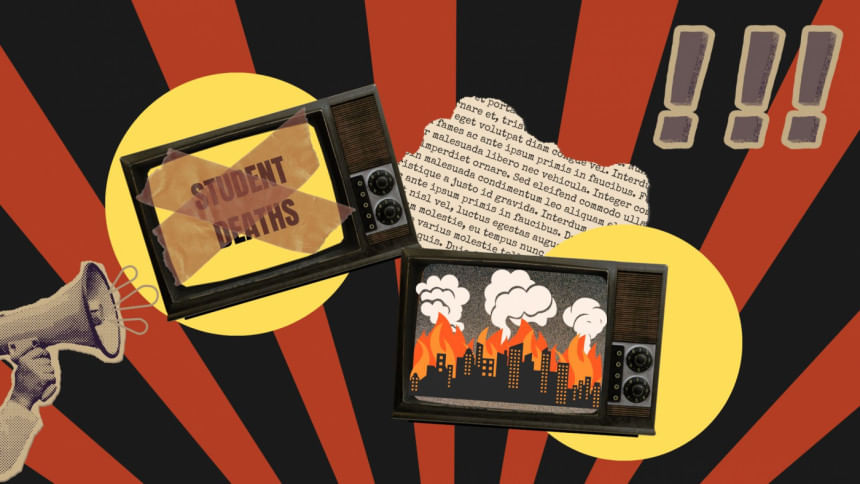
When internet connections went cold on the evening of Thursday, July 18, Bangladesh was suddenly and forcefully hurled back in time to an era when instant communication was not the norm. Without the internet, in the early 2000s and before that, the only notable and reliable sources of news were TV channels and print newspapers. As a consumer, you got the roundup of the daily news in the evening broadcast on TV along with hourly updates if something important was unfolding, followed by details on print newspapers the morning after. The media machine back then worked fine, and the public was used to this meandering speed of the news cycle.
The problem with being hurled back in time like this was that not everyone was prepared for time travel. Many people have stopped subscribing to print newspapers at their doorstep every morning, and cable connections at home have become increasingly rare. However, without the internet, these sources suddenly became the only place to get reliable information, especially TV channels as they have the ability to broadcast all day and all night.
In fact, given that the country had been embroiled in a remarkable level of violence at the time of the internet blackout, it could be argued that it was the responsibility of electronic media to make full use of the technology at their disposal, and keep people as up-to-date as possible. Lack of information, especially in a society that up until a minute ago was drowning in information, is a real crisis. It can lead to panic, bad decision-making, and suffering that is avoidable.
Throughout this terrible previous weekend, as people's phones kept ringing off the hook delivering devastating news, an unknown percentage of which were rumours, those with cable connections at home might have looked at TV news channels to corroborate or dispel what they were hearing. After getting home from work on Thursday evening having witnessed a city in turmoil, I found myself flipping through the channels on my TV to see if anyone had anything reliable to say about what I had just seen or the gunshots my friends were telling me they heard in their neighbourhood, but to no avail.
Of course, they did not fail to report on the cases of arson and vandalism at government establishments across the city. The comprehensive coverage provided to the data centre in a building adjacent to the Department of Disaster Management in Mohakhali deserves plaudits, as does the coverage of the devastating fires at BTV, Setu Bhaban, and toll plazas of Dhaka Elevated Expressway and Mayor Hanif Flyover. Yet, the dangerous events taking place across Dhaka that were killing and maiming people in scores did not seem to get the same spotlight.
The sudden disappearance of internet connectivity definitely hampered TV networks, and Thursday evening might have gone by with them simply trying to get a hang of the problem. It's understandable if they decided to divert resources from dangerous spots in the city from where it was getting increasingly difficult to collect reliable accounts, but during the day on Friday, by which time many newspapers had reported on the death toll and violence already, TV channels did not change their tune.
Friday saw the most violence in this whole sequence of events, and as terrified citizens were stuck at home, hearing the most bone-chilling accounts of what befell those unlucky enough to be on the streets, the lack of information put a final nail in the coffin in that day's dystopian reality. On TV, news scrolls appeared in some channels saying that clashes were going on in certain parts of Dhaka and the rest of the country, but the scale of it remained unuttered. This paper reported 66 deaths on Friday that it could independently confirm, taking place throughout the day at various locations. On TV, the death counts did not appear in scheduled broadcasts. The destruction that either precipitated or followed the deaths was given its due coverage, but for most people, it took until Saturday morning's papers to realise the extent of the horrors that people experienced. Those who didn't get newspapers on the first day of the curfew had to rely on whatever information they could gather from phone calls and text messages from friends and family.
As the curfew was enforced on Friday night, going into Saturday, many TV channels reported a relative normalisation of the situation. Reports of scattered clashes in various parts of Dhaka and the rest of the country appeared in news scrolls, but once more, details of the scale of the violence did not. I made the decision to leave my area and get to work, which falls under the category of essential services, through the Pragati Sarani road after watching a morning broadcast of the Notunbazar area where army and police checkposts seemed to have kept things calm. I turned back after starting once I received a couple of phone calls from friends in the area who reported hearing gunshots.
On Sunday morning as well, by which time TV panels were discussing how long it would take for things to get back to normal (while newspapers once again reported dozens of deaths on Saturday), I tried to exit the area I lived in through the Pragati Sarani road. This time, I found myself in a standoff between an unidentified group of individuals who had started a fire on the road, and armed police accompanied by an armoured vehicle. I stepped off the road with hundreds of others in fear of ensuing violence. By midday, violence did ensue in the area I had assumed was safe in the morning.
If internet services had not been disrupted, hardly anyone would have looked to electronic media to get information about the safety conditions of the roads before going out during this weekend. As a society, we have learned to trust collective information gathering via the internet, and many of us have learned the skills to be able to differentiate between reliable accounts and rumours. These five days without the internet shows why people have made that decision. Traditional news sources like TV networks had the opportunity to step up to the plate and properly help the public at a time when they desperately needed it. The fact that they could not provide this service even at this desperate hour proves that it was futile to have this expectation in the first place. It is either a lack of ability or a lack of will that is at play here, and whatever the reason behind it, TV channels do not serve its viewers.
Azmin Azran is digital features coordinator at The Daily Star.
Views expressed in this article are the author's own.
Follow The Daily Star Opinion on Facebook for the latest opinions, commentaries and analyses by experts and professionals. To contribute your article or letter to The Daily Star Opinion, see our guidelines for submission.
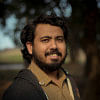
 For all latest news, follow The Daily Star's Google News channel.
For all latest news, follow The Daily Star's Google News channel. 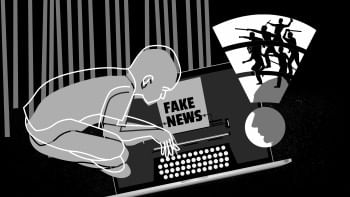
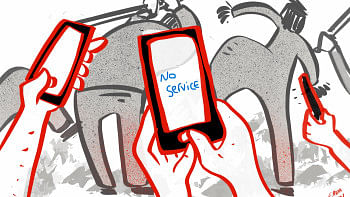




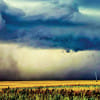




Comments